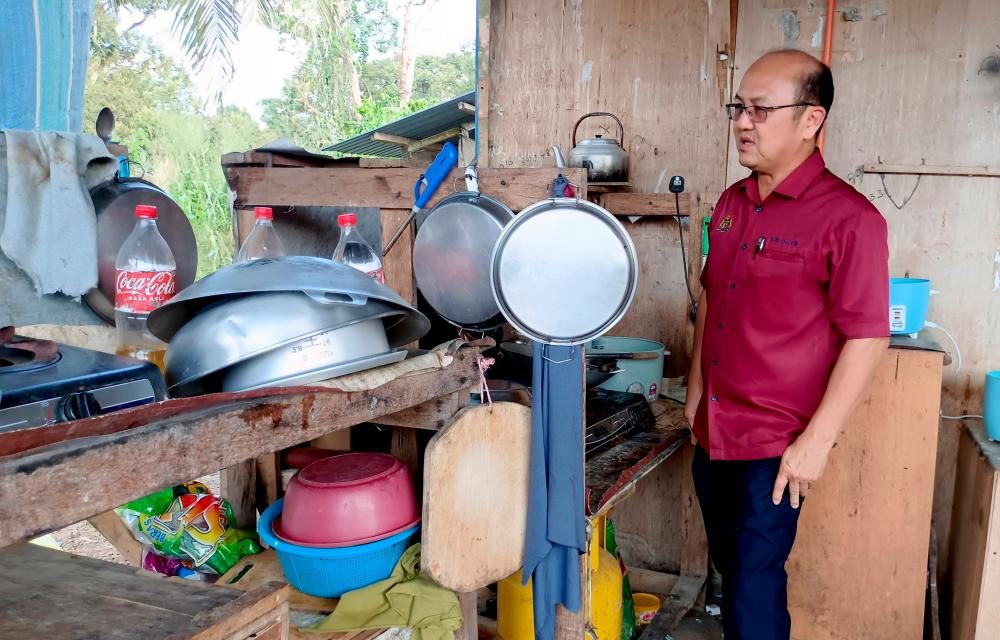JASIN | In a recent integrated enforcement operation led by the state Labour Department (JTK), a furniture factory in Sungai Rambai has come under scrutiny for multiple violations, exposing the inadequate living conditions provided to its foreign workers.
The factory owner now faces potential legal consequences for offenses that range from lacking proper accommodation certificates to violating the Workers’ Minimum Standard of Housing and Amenities Act 1990 (Act 446).
The investigation, which unfolded under the supervision of Ngwe Hee Sem, the chairman of the State Health, Human Resources, and Unity Committee, unveiled serious shortcomings in the accommodation provided for 66 foreign workers.
Among them were 30 Bangladeshi, 26 Nepalese, and 10 Myanmar citizens. The wooden village houses, designated as worker accommodations, were found to be in violation of Act 446 standards.
Critical deficiencies included the absence of essential amenities such as thin mattresses, cupboards without locks, insufficient ventilation, and exceeding the permissible capacity.
Sanitary conditions in common areas, specifically the toilet and kitchen, were reported as subpar, with unsafe electrical wiring posing additional hazards.
Following the enforcement operation, the Melaka JTK has initiated a thorough investigation into the identified violations.
This includes the collection of statements from both employees and employers involved in the case. If found guilty, the employer could face fines of up to RM50,000 for each documented offense.
In addition to the labor violations, the Jasin Municipal Council (MPJ) has levied three fines, ranging from RM250 to RM1,000.
These fines stem from the factory owner operating with an expired license since October 2021 and a failure to maintain cleanliness standards within the hostel and factory premises.
Further concerns were raised by the Jasin District Health Office (PKD), which identified the premises as a breeding ground for mosquito larvae and flagged the potential for infestations of cockroaches and rats.
Ngwe underscored the state government’s commitment to upholding Act 446 and ensuring compliance with laws governing worker accommodation.
Continuous monitoring will be implemented to guarantee adherence to these regulations, with stern actions promised against employers who fail to meet the required standards.
The case serves as a stark reminder of the importance of maintaining proper living conditions for workers and the legal consequences that follow non-compliance with established standards.








